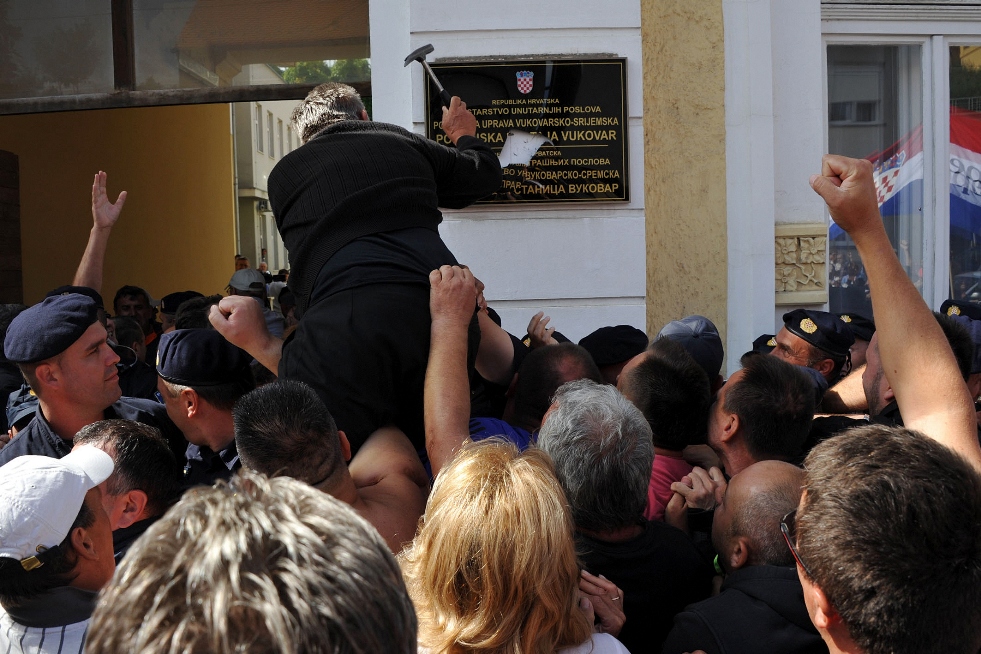Multilingualism is an imperative of the cultural identity of Europe where many languages are both a majority and a minority language at the same time, and it is therefore necessary to preserve multilingualism in European countries, including Croatia – this was the message of a round table debate entitled “European Wealth of Multilingualism: Quo vadis, Croatia?”, held in the eastern city of Vukovar on Friday.
The event was attended by representatives of state administration units, local communities, civil society organisations and associations and the embassies of Great Britain, Sweden, Hungary, Finland and Belgium.
The languages of the ethnic minorities in Croatia (Hungarian, Serbian, Czech, Slovak and Italian) are used in 27 local communities in line with the Constitutional Law on the Rights of the Ethnic Minorities, and in 30 communities in line with local regulations.
The referendum initiative seeking that an ethnic minority should have the right to use its language and script only in areas where its makes more than 50% of the local population is harmful and contrary to principles and good practice throughout Europe, said Eugen Jakovcic of the nongovernmental organisation Documenta – Centre for Dealing with the Past.
Martina Horvat of another NGO, called GONG, said GONG supported preserving multilingualism and establishing dialogue with members of all ethnic communities based on mutual respect and respect for differences. She added that showing intolerance towards an ethnic minority and symbols of its cultural identity restricted the liberties, rights and security of Croatian citizens.
Assistant War Veterans Minister Bojan Glavasevic said that multilingualism needed not lead to conflict because there were many societies with a number of linguistic groups bearing witness to positive experiences with multilingualism.
Why is there no respect for differences?
The real problems in Vukovar are not related to bilingualism, but to other things, said Glavasevic.”It would be very wise to separate those phenomena. Multilingualism has been present in many societies for a very long time, and the problems in Vukovar have nothing to do with bilingualism. Multilingualism in Vukovar is not an exception but a rule – not since today, yesterday or 10 or 20 years ago, but since long ago,” he said.
Speaking of the right to use the Croatian language and Latin script in Serbia, the head of the Institute for the Culture of the Vojvodina Croats, Tomislav Zigmanov, said that the number of local self-government units in Serbia where Croatian was used officially was much smaller than the number of self-government units where the Slovak or Romanian languages were in official use.
“In communities where Croatian is an official language, there are problems with court proceedings or with the issuing of documents in Croatian and the right to official communication in Croatian with representatives of Serbian state institutions,” Zigmanov said, adding that in Serbia, too, bilingual plaques were sprayed with dye, but unlike the situation in Vukovar, they were not replaced with new ones.
The round table discussion was organised by the civic initiative “All of Us – For a Croatia of Us All”, a coalition of civil society organisations called Platform 112, the Civic Committee for Human Rights (GOLJP), the Nansen Dialogue Centre, and the European House Vukovar.
